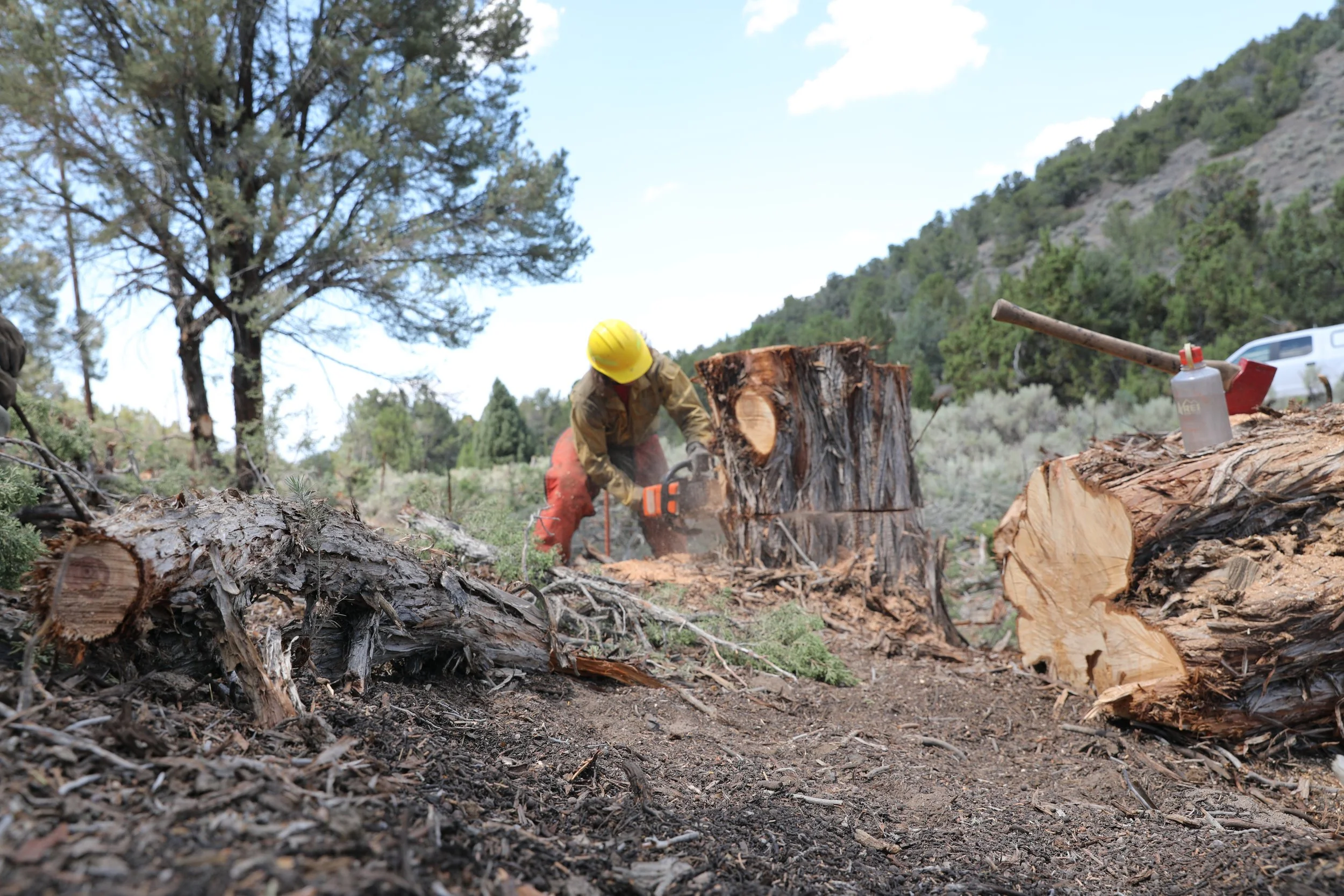Your Future is Here
Learn More About Specific Fire Careers Below
Learn More About Specific Fire Careers Below
Dispatchers are responsible for mobilizing resources, such as engine crews, helicopters, and airtankers, to wildland fires and other incidents. They coordinate communication between the incident and fire managers and handle requests from the fire for additional personnel and equipment.
.
Engine crews drive engines to fire locations and are used for initial attacks, suppression of large fires, support of management-ignited fires, patrolling, and working with the public to promote fire prevention and education.
Personnel working in this area are responsible for the acquisition, management, and coordination of finance, procurement, and personnel records, associated with fire and other natural disaster operations supported by the agency.

Handcrews normally consist of 18-20 crewmembers and are used for a variety of operations on wildland fires. Hotshots are considered elite among wildland firefighters due to their extensive training, high physical standards, and ability to undertake difficult assignments. Veteran crews are specifically comprised of all military veterans. These hand crews provide job and career avenues for returning veterans, allowing them to find post-military careers that will ideally help in the transition back to civilian life.

Operate fire equipment, including tracked vehicles like dozers, to actively suppress wildfires.
Helitack crews provide land managers with a safe, highly skilled, and productive aerial firefighting resource. Crew members are specially trained in the tactical and logistical use of helicopters for fire suppression. These crews are a primary initial attack resource transported to wildfires by helicopter. Often, they are first on-scene and assess the wildfire.
A Bureau of Land Management (BLM) hotshot crew consists of 20 specially-trained firefighters. They provide an organized, mobile, and skilled workforce for all phases of wildland fire management.
.

A fuels crew specializes in vegetation management related to wildland fire hazards and risks. Fuels crews generally have 10 members who focus on implementing fuel treatments in forest and rangeland fuel types. These crews have the skills and qualifications to assist in wildland fire suppression operations when needed.
Specialists connect with the public and local partners to spread awareness on how to prevent human-caused wildfires.
Veteran crews are specifically comprised of all military veterans. These hand crews provide job and career avenues for returning veterans, allowing them to find post-military careers that will ideally help in the transition back to civilian life.
Veteran crews are used for a variety of operations on wildland fires. Primary duties consist of constructing firelines with hand tools and chainsaws, burning out areas using drip torches and other firing devices, and mop-up or clean-up and rehabilitation of burned areas.